Sydney man Zoran Tadic to face war crime prosecution as dozens of suspected war criminals in Australia
A Sydney man accused of being the leader of a paramilitary group that committed war crimes including the massacre of 30 civilians will face prosecution.
True Crime
Don't miss out on the headlines from True Crime. Followed categories will be added to My News.
A Sydney man accused of war crimes including the massacre of 30 civilians during the Balkans war will face prosecution, with Serbia agreeing with former foe Croatia to allow a case against him to proceed.
Zoran Tadic, 60, had been living a quiet life in suburban Heckenberg in Sydney’s south west for 26 years, where he became a dual Serbian-Australian citizen and a father.
In 2019 Tadic fled to Serbia after charges for crimes against humanity were laid against him by Croatia. He has strenuously denied the allegations.
He was accused of being the leader of a paramilitary group who allegedly massacred 30 civilians and 13 local fighters in November 1991 in Skabrnja in Croatia. He moved to Australia to set up home a few months later in August 1992.
The case against him stalled in March 2021 because he was deemed by Croatian authorities to be “non accessible” while being in Serbia and the Covid-19 pandemic made gathering witness testimonies difficult.
But the County State’s Attorney’s Office in Split has now confirmed a request to the High Court in Serbia’s capital Belgrade for international legal assistance and file access was granted and a case against him is now to proceed.
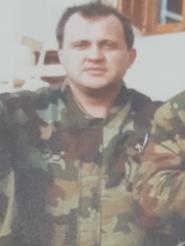
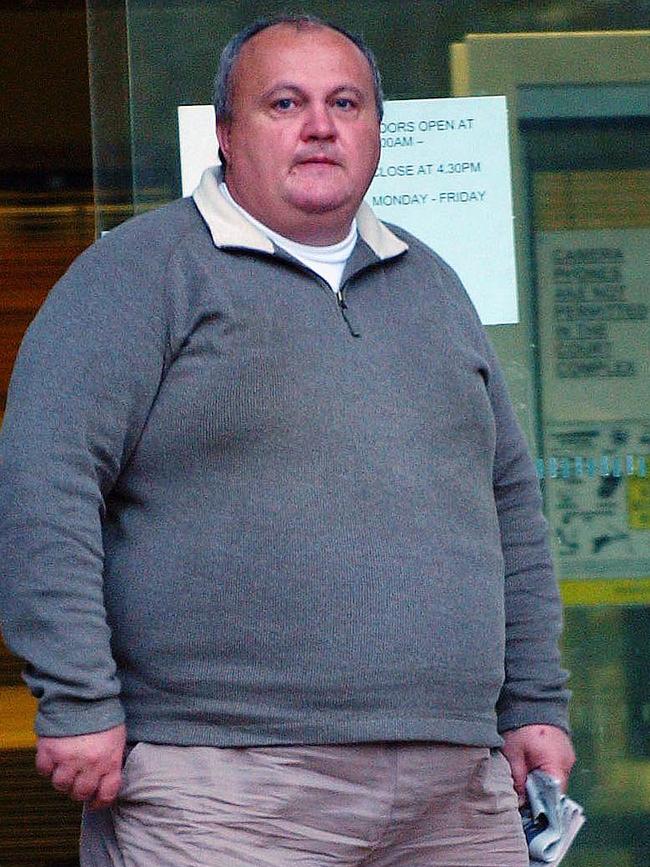
The case has been filed in Belgrade and Serbian authorities, keen on clearing historic war crimes cases, are now assisting although no formal extradition agreement exists between the two countries.
New evidence has also emerged from the files of the International Criminal Tribunal for the former Yugoslavia (ICTY) and its successor IRMCT, an international court established by the United Nations Security Council.
His name first came up during a trial of two men in 2015 and again in June 2021 for unrelated murders and persecutions as they attempted to expel non-Serb residents from autonomous Krajina when evidence of atrocities in 1991 Skabrnja emerged.
Tadic, was spirited out of Australia by local Serbian friends, with Croatian authorities not requesting an arrest warrant believing his obesity and poor health meant he was unlikely to leave; he has since moved to Loznica in western Serbia and denied alleged atrocities.
“I was not an executioner. It is easy to prove that. And then I will demand satisfaction from all those who ruined my life with lies in court for damages,” he told local media in Serbia.
Tadic was convicted over a road rage incident in Sydney in 2005 where a woman was thrown into traffic.
It comes as Australia is a potential haven for foreign war criminals and terror suspects with dozens believed to be living quietly in the community.
Despite suspicions of links to murder, executions and human rights abuse, the suspects are believed to have come into the country as migrants and refugees from a range of conflict zones including the break-up of Yugoslavia and the Bosnian wars, Afghanistan, Lebanon, Sri Lanka, Rwanda and the Middle East.
A recent Australian Federal Police intelligence report citing the Attorney-General’s Department concluded “there are up to 70 Balkan identities wanted for war crimes in Australia”.
In 2019, it found there were another 33 suspected war crimes suspects in Australia, mostly involving Sri Lanka military and revolutionaries, referred for potential prosecution and another 34 for ASIO intelligence file reference with five still living in the community.
It concluded: “To date there have not been any successful war crimes prosecutions in Australia highlighting the complexity that investigations of these type present.”
But despite the United Nations and special investigators in The Hague amassing 10 million pages of crimes and suspects scattered across the globe linked to the former Yugoslav conflict alone, Australian investigators have never bothered asking for evidence. There is also a mass of documentary evidence related to Syrian conflict suspects.
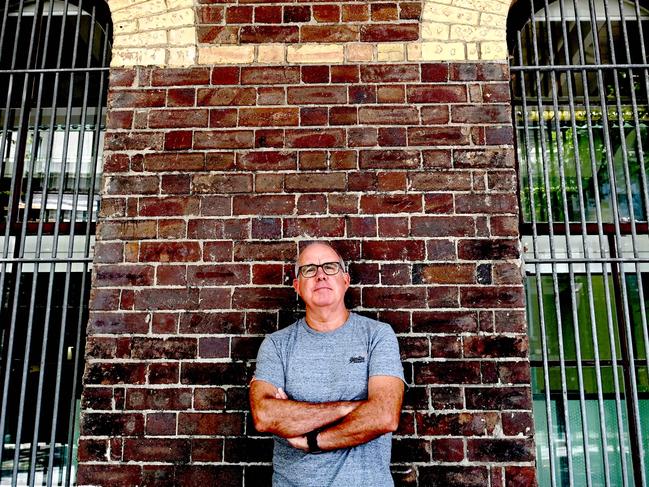
Bob Reid, former operations chief for the International Criminal Tribunal for the former Yugoslavia (ICTY), set up to probe atrocities during the Balkan wars, said in 25 years working for the group he could not recall Australia formally asking for access to files.
“We were getting requests on a daily basis from Germany, Canada, the United States, Sweden, from France who are doing national prosecutions now in their countries, they’re not extraditing them back … but nothing from Australia,” he said on a visit to Australia this week.
“I’ve got no doubt there would be war criminals here, I think the majority are true refugees but out of that there would be a handful that are not and it’s not just the Bosnians and Rwandans, its Syria its Libya all those countries where they have had some type of conflict.”
The UN-led investigations into war crimes had quietly sent investigators to interview witnesses who had moved to Sydney, Melbourne, Perth and Adelaide as victims of crimes to help prosecution of suspects being pursued by other foreign governments.
Mr Reid, who has helped track down and arrest more than 160 war criminals including famously the “Butcher of Bosnia” Ratko Mladic and has just spent a year in Africa for the UN-led probe into Rwandan genocide, said it was logic criminals would be here.
A spokesman for the Attorney-General’s Department said: “The department does not hold information regarding the number of suspected war criminals presently in Australia”.
Australia’s Croatian and Albanian community leaders suspected there were at least 20 known Serbian war criminals living in Australia.
“The Federal Government has really taken a three monkeys approach when it comes to the Balkans, I don’t know why, but there are people here suspected of having committed appalling crimes,” investigative journalist Branko Miletic said.
WAR CRIMINAL SET-UP CHARITY IN AUSTRALIA
Australia’s most infamous convicted war criminal Captain Dragan Vasiljkovic has established a charity foundation to help Serbians accused of war crimes.
The former Perth golf instructor known also as Daniel Snedden was extradited to Croatia in 2015 on charges he led a paramilitary force
He was convicted, served 13.5 years in jail and was released last year to then establish the “Dragan Vasiljkovic Foundation” to help Serbian war crimes suspects.
It has been confirmed the foundation has a new headquarters in the city of Subotica in north Serbia.
Local politicians have condemned the move and questioned how a criminal could be allowed to do this.
War crimes suspects tend to flee Australia either when they are exposed, their visa expires or they face charges and potential extradition.
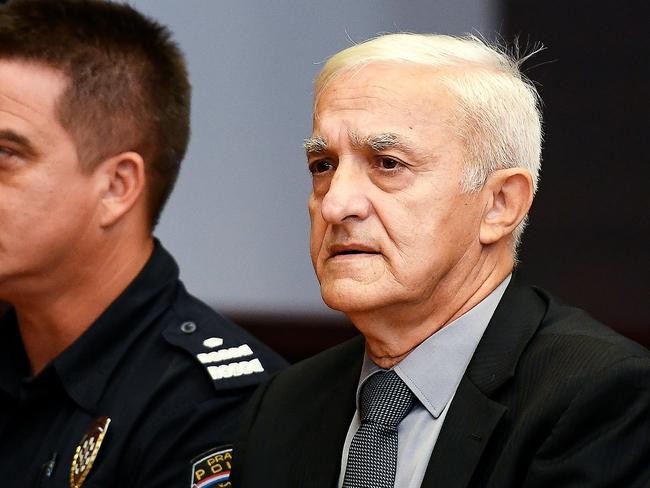
Sydney man Zoran Tadic fled Australia in 2019 after Croatian authorities moved to extradite him on allegations he was a commander suspected on involvement in the massacre of 30 Skabrnja civilians.
“The process against Zoran Tadic still goes on”, the Ministry of Justice in Zagreb said, although it conceded proceedings through the County Court in Split had been delayed due to Covid-19 movement restrictions.
In 2019 Mr Tadic, speaking from his home in Loznica in western Serbia denied the allegations and told local media: “I feel sorry for Skabrnja, of course, then and now, for everything that happened there. I feel sorry for every innocent life lost, because life is sacred to me.”
On the question of further Bosnia war suspects in Australia, the Croatian Embassy in Canberra said: “The Government of the Republic of Croatia continues to take all efforts aimed at bringing the perpetrators of war crimes and crimes against humanity to justice. In those efforts, we work closely with relevant authorities in all jurisdictions where suspected or convicted offenders may reside.”
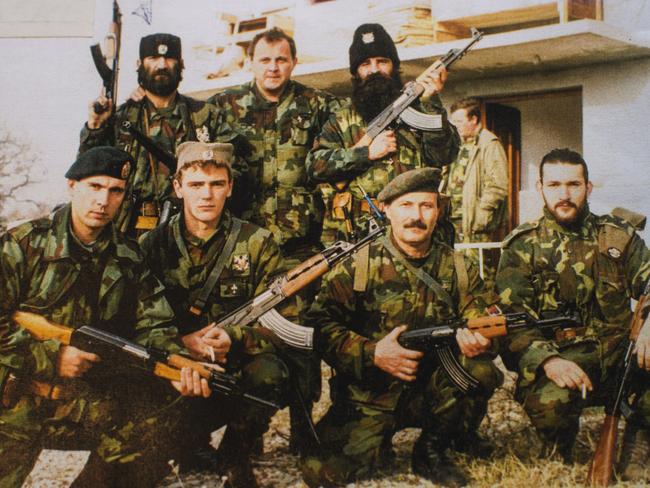
WHO HAS COME HERE?
A facilitator of explosives for the Liberation Tigers of Tamil Eelam (LTTE) in Sri Lanka, a Tamil commander, a Sri Lankan Army commander accused of murder, a Sri Lankan military deserter suspected of killing and torturing children;
A military spy for the Marxist revolutionary group the Janatha Vimukthi Peramuna;
A clique of Serbian militia turned criminal drug lords;
Suspected member of the Algerian Groupe Islamic Armee;
Member of Islamic Dawa Party;
An ethnic former Yugoslav Chetnik fighter;
A Myanmar Tatmadaw commander-linked financier;
A Lebanese Forces Christian Militia fighter sentenced by a court in Beirut to life in prison for nine murders, granted refugee visa before background was established;
A Syrian active sworn member of Islamic State (IS);
An Iraqi IS member.
Some arrived as refugees and cannot be removed as they would face the death penalty at home, others have since become dual nationals, others have left and are being blocked from returning, a few have been expelled from Australia on security grounds, at least one is being held in immigration detention awaiting deportation.




